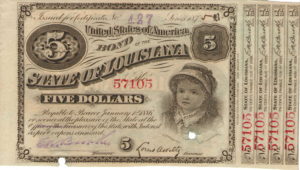
Christopher Wynne, of Chicago, Illinois, a stockbroker with Meyers Associates, L.P., was fined $25,000.00, barred from acting as a principal in any Financial Industry Regulatory Authority (FINRA) member firm, and received a two-year suspension from associating with any FINRA member firm in any capacity per an Order Accepting Offer of Settlement containing findings that Wynne had committed willful securities fraud via market manipulation; fraudulent omission of material conflicts of interest concerning purchases/sales of a security; distribution of false sales and research materials; unauthorized disclosure of non-public and confidential material information regarding a securities offering; falsification of the firm’s records; supervisory failures; and failure to establish/implement anti-money laundering procedures and policies. Department of Enforcement v. Wynne, No. 2013035533701 (Feb. 18, 2016).
According to the Order, from May 15, 2012 through May 24, 2012, Wynne was the designated supervisor of a stockbroker, George Johnson, who manipulated IceWeb, Inc. common stock via solicitation of customers to both buy and sell securities via matched orders. IceWeb reportedly marketed and managed custom built appliances, software for government agencies, and manufactured such products accordingly. FINRA considered Johnson’s conduct of market manipulation to be at least reckless, if not intentional. FINRA found Johnson’s acts to be in violation of Securities Exchange Act of 1934 Section 10(b), Rule 10b-5, as well as FINRA Rules 2010 and 2010.
The Order stated that from February through May of 2012, Meyers’ customers had received sales and research reports that FINRA deemed to be exaggerated, misleading, void of material information via non-disclosure, and consisting of claims which were unsupported. The Order indicated that Wynne was responsible for sending such sales and research reports, and therefore violated FINRA Rule 2010 and NASD Conduct Rules 2210 and 2711 as a result.
The Order further indicated that from July 18, 2012 through August 31, 2012, customers were solicited via Johnson, while Johnson was under the supervision of Wynne, where such solicitation was to purchase Snap Interactive Inc. stock. Johnson reportedly failed to inform investors that he had been selling his personal holdings of Snap Interactive, while also selling his spouse’s shares, simultaneously with the customers’ purchase of Snap Interactive. FINRA found Johnson to have willfully violated Securities Act of 1934 Exchange Act, Rule 10b-5, and FINRA Rules 2010 and 2010 in this regard.
Additionally, while under Wynne’s supervision, another firm stockbroker, Joseph Mahalick, as well as Johnson, had intentionally caused over one hundred order memoranda and several account applications to misclassify the broker of record. Apparently, this was done in order to conceal state registration requirements being violated by Johnson. FINRA found that Meyers had violated FINRA Rules 2010 and 4511, as well as Securities and Exchange Commission Rules 17a-3(a)(6) and 17a-3(a)(17)(i)(A) as a result.
Wynne reportedly had not properly supervised the firm’s Chicago branch office location. Wynne was specifically found to have violated NASD Conduct Rule 3010(a) and FINRA Rule 2010 as a result of failing to supervise general procedures, as well as Johnson’s trades; failing to provide adequate supervision pertaining to research and sales literature distribution, and well as failing to review correspondence.
Public disclosure records reveal that Wynne has been subject to three disclosure incidents. On March 26, 2010, Wynne was reprimanded by FINRA for failure to supervise while he was associated with Garden State Securities. FINRA Disciplinary Action No. 20080116965 (Mar. 26, 2010). On April 8, 2015, Wynne was named in a Complaint containing allegations associated with the aforementioned Order Accepting Offer and Settlement. Department of Enforcement v. Johnson et al., No. 2013035533701 (Apr. 8, 2015). On October 30, 2015, Wynne became subject to a pending customer dispute in which a customer is requesting $2,600,00.00 after alleging unsuitable investments.
Guiliano Law Group
Our practice is limited to the representation of investors. We accept representation on a contingent fee basis, meaning there is no cost to you unless we make a recovery for you. There is never any charge for a consultation or an evaluation of your claim. For more information, contact us at (877) SEC-ATTY.








